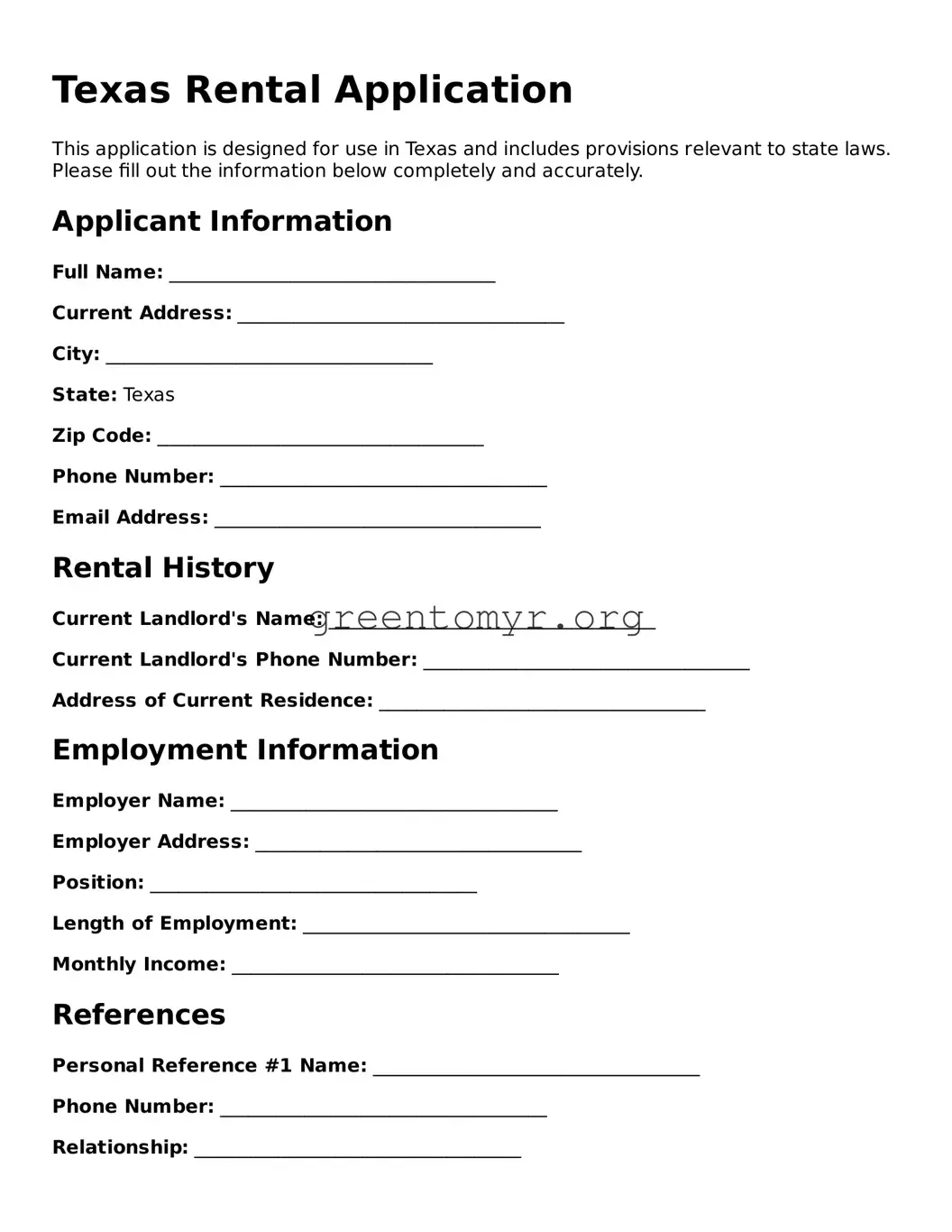Texas Rental Application
This application is designed for use in Texas and includes provisions relevant to state laws. Please fill out the information below completely and accurately.
Applicant Information
Full Name: ___________________________________
Current Address: ___________________________________
City: ___________________________________
State: Texas
Zip Code: ___________________________________
Phone Number: ___________________________________
Email Address: ___________________________________
Rental History
Current Landlord's Name: ___________________________________
Current Landlord's Phone Number: ___________________________________
Address of Current Residence: ___________________________________
Employment Information
Employer Name: ___________________________________
Employer Address: ___________________________________
Position: ___________________________________
Length of Employment: ___________________________________
Monthly Income: ___________________________________
References
Personal Reference #1 Name: ___________________________________
Phone Number: ___________________________________
Relationship: ___________________________________
Personal Reference #2 Name: ___________________________________
Phone Number: ___________________________________
Relationship: ___________________________________
Additional Information
Have you ever been evicted? Yes / No
Do you have any pets? Yes / No
- If yes, please specify: ___________________________________
Any additional comments or information: ___________________________________
Consent for Background Check
By signing below, you give permission for the landlord to verify all information provided in this application, including a background and credit check.
Applicant's Signature: ___________________________________
Date: ___________________________________
